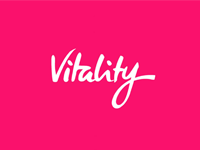An ISA is an Individual Savings Account that allows individuals to hold cash or shares without having to pay tax on interest accrued or dividend payments. The most common type of ISA is a simple cash ISA. You can open an ISA with a bank or building society, subject to approval.
Cash ISAs
A cash ISA allows the account holder to deposit money into the account up to a set limit each year. This set limit is called the ISA allowance. The ISA pays interest on this money and any money left in the ISA from previous years. The interest paid is not subject to tax.
When should you get an ISA?
Anyone at any age should consider getting an ISA if they plan to save. To make the most of this saving opportunity and avoid having to pay tax on interest for longer, the earlier you take out a cash ISA the more beneficial it can become, especially if you add to it each year.
The pros and cons of Cash ISAs
The benefits of using a cash ISA are:
- Your capital is secure and not at risk
- You can find competitive interest rates, usually better than other savings accounts
- You still have access to your money in an emergency
- Easy to transfer to other ISA providers
- No tax to pay on interest payments
The disadvantages of cash ISAs are:
- You cannot deposit more than the ISA allowance within one tax year
- The new Personal Savings Allowance allows everyone to earn up to £1,000 of interest each year with no tax to pay, making the tax benefits redundant for many people. This is especially true if you haven’t repeatedly contributed large amounts to your cash ISA.
Other types of ISA
Along with Cash ISAs, you can also find stocks and shares ISAs, Lifetime ISAs, Help to Buy ISAs (discontinuing) and Junior ISAs.
An ISA is a medium to long term investment, which aims to increase the value of the money you invest for growth or income or both. The value of your investments and any income from them can fall as well as rise. You may not get back the amount you invested.
HM Revenue and Customs practice and the law relating to taxation are complex and subject to individual circumstances and changes which cannot be foreseen





Really great deal
Excellent service, really great deal found and would highly recommend.